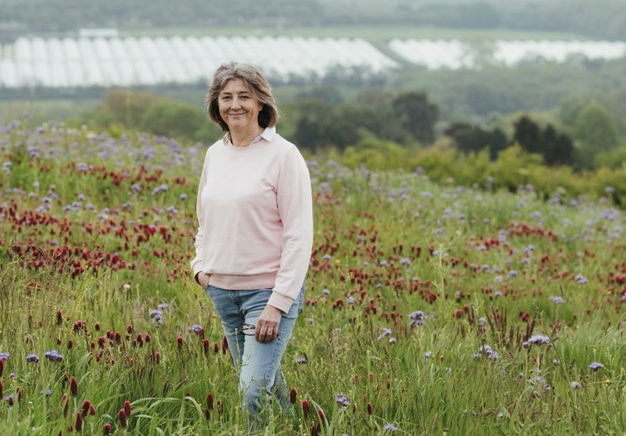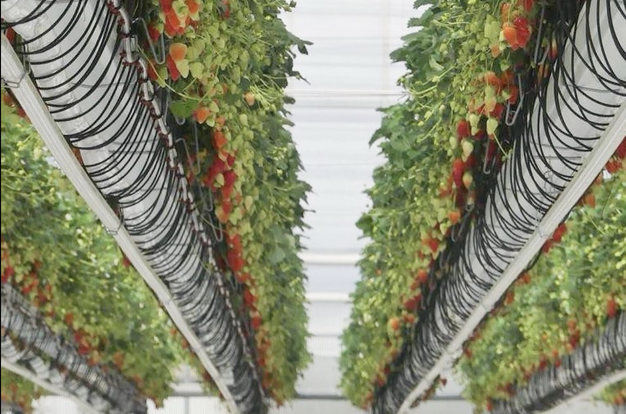As a fifth-generation grower, Marion Regan of Hugh Lowe Farms believes and has always believed, that there's nothing not to like about strawberries. "But there's too much pressure through the supply chain, causing an imbalance, squeezing the grower, but also the consumer. We want the chain to recognize the consumer deserves better than this."

Has life for a strawberry grower been tough in the last few years? This question was asked to Marion at the recent Global Berry Congress. As one of the biggest berry growers in the UK, growing in open fields, tunnels, and glasshouses, and known for their sole supply to the Wimbledon Tournament, Hugh Lowe Farms has a prominent position in the industry. However, dealing with increased labor costs and pressure in the market posed new challenges for the company.
"The reason we get up in the morning and obsess over our strawberries, raspberries, and blackberries is, although it's risky it was a rewarding and enjoyable sector to be part of," she answered. "But now our risk-reward balance is wrong. As growers, we take all the risk in terms of financial and reputational risks, and employ hundreds of people, going through the stresses and strains of producing a fantastic quality product every day. This has been worth it but is increasingly less worth it."
Consumer doesn't know
Marion adds that due to the pressure in the market, the consumer has also taken on more risk. "The consumer doesn't know when going to the shop whether there is to be a full shelf of berries and has increasingly met empty shelves. They do not know the quality, the environmental growing procedures, and the quality of the berries because there's too much pressure through the supply chain, an imbalance squeezing both ends - the grower and the consumer."
A lot of the costs for growing are baked in, especially the labor one, but also the increase in costs such as energy. Now the minimum wage in the UK increased again up to £11.44, Marion fears suppliers will face a double whammy. "Labour is 50 percent of a soft fruit grower's cost, but our customers, retailers, are also employers of people, and they will look at their own profit margins first.

Delighting the customer is what Marion believes strawberries should do, and she is assured the consumer wants to pay for a better quality product that's grown sustainably – but this requires long-term effort. "As an industry, we need to speak with one voice and make it plain that for ethically and environmentally safe soft fruits, we need to invest over the long term. Planting, growing on substrate and tabletops in tunnels, means long propagation cycles and involves expensive breeding programs. Short-termism will not deliver a better outcome for the consumer."
Yet, the imbalance in the industry affects the viability and the sustainability of the sector. "We're not negative about the potential of berries, but the balance in the supply chain will lead to fewer people wanting to invest in the category, which is a tremendous shame. This also makes it harder to attract the next generation to join us in the business."
Linchpin of the category
Marion makes clear she's not negative about the supermarkets. "The professionalism of retailers, the communication with the customer, the displays of soft fruit, can be fantastic." With an international scope, she shares the team also grows in Australia, which, as a branded and protected market, is a different situation. "They do not yet have the tools British supermarkets have for dealing with seasonal crop flushes and supply. British retailers can be so good at managing this. But in recent years, a more short-term approach has come into the category."
She believes a focus on strawberries and the promotion of the product are a concern as well. "Strawberries are a passion of mine and are also the linchpin of the category. They are what everybody remembers eating as a child. The growth of the category can be ensured by putting a better and improved product in front of the customer. If these get left behind, people are less excited. If you neglect strawberries, the rest of the category will suffer, but if you focus and promote strawberries, the rest of the category will come along."
For more information:
Hugh Lowe Farms
https://www.hughlowefarms.com/
